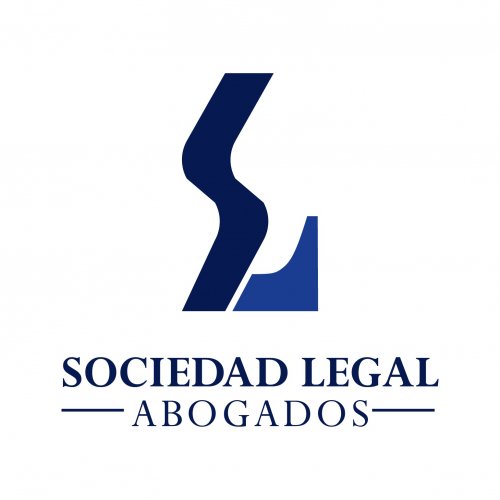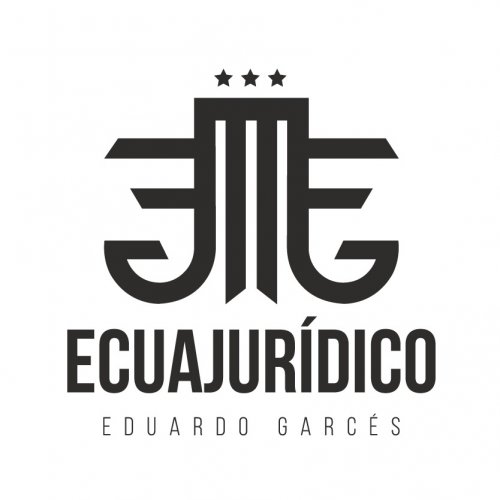Best Lawsuits & Disputes Lawyers in Ecuador
Share your needs with us, get contacted by law firms.
Free. Takes 2 min.
Or refine your search by selecting a city:
List of the best lawyers in Ecuador
About Lawsuits & Disputes Law in Ecuador
Lawsuits and disputes in Ecuador often arise in both civil and commercial contexts and are governed by the Ecuadorian legal system, which is influenced by civil law traditions. The legal framework, which includes the Código Civil (Civil Code) and Código de Procedimiento Civil (Civil Procedure Code), provides avenues for addressing grievances. These laws are designed to provide equitable resolutions through formal judicial processes and alternative methods such as mediation and arbitration.
Why You May Need a Lawyer
There are several situations where individuals or businesses might require legal assistance in Ecuador concerning lawsuits and disputes. Common scenarios include breach of contract, property disputes, family law issues such as divorce or custody battles, employment disagreements, and consumer rights violations. Engaging a lawyer can help navigate the often complex legal procedures, ensure your rights are protected, and potentially aid in achieving a favorable outcome.
Local Laws Overview
The legal landscape in Ecuador is characterized by several key aspects that are pertinent to lawsuits and disputes. The Constitution of Ecuador guarantees the right to legal representation and a fair trial. The civil code lays out substantive laws, while civil procedure codes dictate how these laws are enforced and applied in courts. Additionally, Ecuador recognizes alternative dispute resolution methods such as mediation and arbitration, which can be faster and less adversarial than traditional courtroom litigation. Understanding how these elements interplay is crucial for effectively handling legal issues in Ecuador.
Frequently Asked Questions
What is the first step in filing a lawsuit in Ecuador?
The first step usually involves consulting with a lawyer to assess the merits of your case and to understand the relevant legal processes. Following this, a formal complaint can be submitted to the appropriate court.
How long does it typically take for a dispute to be resolved in Ecuadorian courts?
The duration can vary significantly depending on the complexity of the case, court backlog, and whether the process involves an appeal. Simple cases might take a few months, while more complex disputes could take several years.
Are there alternatives to going to court for resolving disputes?
Yes, Ecuadorian law provides for alternative dispute resolution methods such as arbitration and mediation, which can be less time-consuming and costly than traditional litigation.
What are the costs involved in pursuing a lawsuit?
Costs can include attorney's fees, court fees, and any costs related to gathering evidence or expert testimony. It is advisable to discuss costs upfront with your lawyer.
Can I represent myself in court?
While you have the right to represent yourself, it is generally not recommended due to the complex nature of legal proceedings and the importance of understanding legal nuances.
What types of disputes are commonly seen in Ecuadorian courts?
Common disputes include family law cases, employment disputes, contractual disagreements, property disputes, and consumer rights issues.
What role do Ecuadorian judges play in lawsuits?
Ecuadorian judges serve as impartial decision-makers who interpret the law and assess the evidence to provide legal judgments on cases before them.
How can I enforce a court's decision?
If you obtain a favorable judgment, enforcement might involve legal actions such as garnishing wages or placing liens on property, depending on the judgment details.
Are court hearings in Ecuador public?
Most court hearings are public, which aligns with the principle of openness in judicial proceedings. However, certain cases, such as family law matters, may have closed hearings.
What should I do if I want to appeal a court decision?
You should discuss the grounds for appeal with your lawyer. Appeals typically must be filed within a specific timeframe after the initial judgment.
Additional Resources
If you need more information or assistance related to disputes and legal processes in Ecuador, consider contacting or visiting the following resources:
- Corte Nacional de Justicia (National Court of Justice)
- Centro de Arbitraje y Mediación de las Cámaras de Producción (Arbitration and Mediation Center)
- Ministerio de Justicia, Derechos Humanos y Cultos (Ministry of Justice, Human Rights, and Culture)
- Local legal aid clinics or pro bono service providers
Next Steps
If you believe you have a legal issue that requires attention, it is critical to take action promptly. Start by consulting with a qualified Ecuadorian lawyer who specializes in the relevant area of law. Gather all documentation and evidence related to your case, and ask about potential legal strategies, timeframes, and costs. Understanding your legal position and rights will empower you to make informed decisions as you navigate the dispute resolution process.
Lawzana helps you find the best lawyers and law firms in Ecuador through a curated and pre-screened list of qualified legal professionals. Our platform offers rankings and detailed profiles of attorneys and law firms, allowing you to compare based on practice areas, including Lawsuits & Disputes, experience, and client feedback.
Each profile includes a description of the firm's areas of practice, client reviews, team members and partners, year of establishment, spoken languages, office locations, contact information, social media presence, and any published articles or resources. Most firms on our platform speak English and are experienced in both local and international legal matters.
Get a quote from top-rated law firms in Ecuador — quickly, securely, and without unnecessary hassle.
Disclaimer:
The information provided on this page is for general informational purposes only and does not constitute legal advice. While we strive to ensure the accuracy and relevance of the content, legal information may change over time, and interpretations of the law can vary. You should always consult with a qualified legal professional for advice specific to your situation.
We disclaim all liability for actions taken or not taken based on the content of this page. If you believe any information is incorrect or outdated, please contact us, and we will review and update it where appropriate.
Browse lawsuits & disputes law firms by service in Ecuador
Ecuador Attorneys in related practice areas.
Browse lawsuits & disputes law firms by city in Ecuador
Refine your search by selecting a city.













